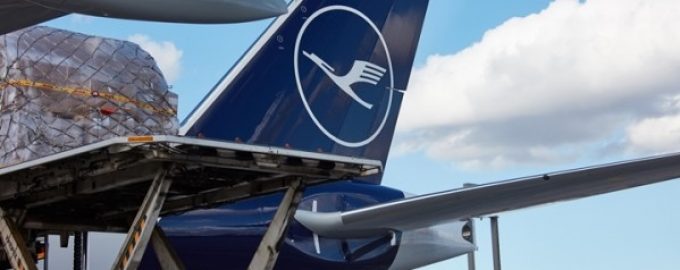Latest strike will cause ‘massive' disruption at German airports
Frankfurt Airport, Europe’s leading hub for air cargo, has warned of “massive disruption” to flight ...

The air cargo industry’s paper chase continues – but with less fanfare, and at a greater pace than before.
American Airlines Cargo is now up to 75% e-air waybills (eAWB) on compliant trade lanes – finding that its decision to charge forwarders fees, an idea pioneered by Lufthansa Cargo – was working.
“When we will get to 100%? That’s the question I keep asking,” said Rick Eliseon, president cargo. “It’s difficult, sometimes you need a more localised approach.
“We find places like Hong Kong have a lot of penetration already, it’s really ...
Outlook for container shipping 'more uncertain now than at the onset of Covid'
Teamsters union vows UPS will be 'in for a hell of a fight' over jobs cull
Shippers warned: don't under-value US exports to avoid tariffs – 'CBP will catch you'
Cancelled voyages take the sting out of spot rate declines this week
New Houthi warning to shipping as rebel group targets specific companies
K+N CEO unveils impact of US import tariffs on China-origin goods
Blanked sailings in response to falling demand 'just a stop-gap solution'
More pressure on transpacific rates as carriers bet on a China-US trade deal
CMA CGM to reflag box ship as the French carrier eyes growing Indian market
Boeing looks to resell up to 50 aircraft rejected by Chinese buyers
'Strong start' to 2025, despite market uncertainty, says Kuehne + Nagel
US Customs chaos means 'more downside risk than upside potential' for air cargo
Taiwan ministries act to mitigate effect of trade war on agriculture exports
Wan Hai joins box shipping 'arms race', but avoids Chinese yards for newbuilds
MOL signs up with Climeworks for direct air carbon capture and storage


Comment on this article
Sam O E Okpro
June 13, 2019 at 7:55 pmWhilst it is encouraging to see the uptake of eAWB, the real challenge will be e-freight where the document owners will have to be fully responsible for the electronic transmission of pertinent documents. With the USA, EU, UK and Canada implementing their versions of the Pre-Loading Advance Cargo Information – PLACI program and the USA enforcing it’s Air Cargo Advance Screening – ACAS program starting effective 15Jun19, I am confident that more Countries will implement and enforce their versions of PLACI in the near future.
Given that we as an industry react very well to Regulatory enforcements, I believe that airlines charging forwarders for eAWB electronic transmission will be a short term successful strategy. We must now start preparing the SME Supply Chain Members to start document transmission of other documents (not just MAWB’s & HAWB’s) with cost effective platforms and be prepared to meet the PLACI requirement that Business Partners (Airlines / Freight Forwarders / GHA’s etc.) will need to have the necessary infrastructure in place to ensure the exchange of required data with the Authorities by:
– providing 24/7 point of contact for the communication of response protocols by the Authorities and
– exchange required data with each other electronically prior to shipment loading
We should start looking forward to e-freight and full digitization now that eAWB penetration will be improved by Regulatory enforcement.